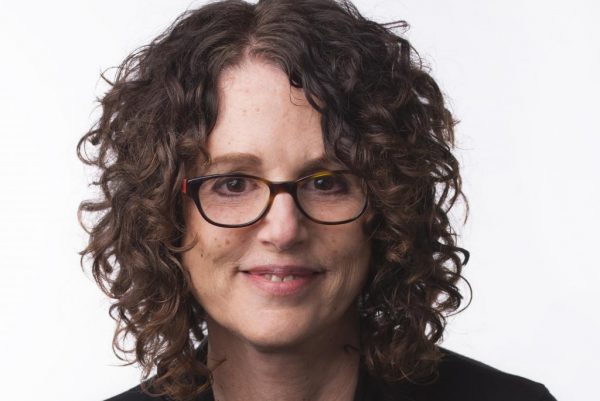“White Fragility” author talks systemic racism, white humility at Family Action Network Q&A

Photo courtesy Evanston Township High School
Robin DiAngelo, author of “White Fragility.” DiAngelo said white people should acknowledge their implicit racism at a Friday Family Action Network Q&A.
June 14, 2020
By denying their implicit racism, white progressives inflict the most daily harm upon black people, said “White Fragility” author Robin DiAngelo in a Friday Q&A.
“Racism is the system,” DiAngelo said. “It is not limited to isolated acts that only mean people who intend to hurt others could ever do … all of the racism I’ve perpetrated in my life has been neither conscious nor intentional, but has wounded others nonetheless.”
Evanston Township High School assistant superintendent and principal Marcus Campbell moderated the Zoom conversation, which was organized by Family Action Network and attracted over 8,000 viewers across the country. The talk will be uploaded to YouTube and FAN’s website in the coming days.
DiAngelo’s 2018 book, which explores why white people fail to confront their own racism, has soared to the top of The New York Times nonfiction bestseller lists, alongside a collection of anti-racist works, following three weeks of widespread protest sparked by the death of George Floyd at the hands of police.
At the talk, DiAngelo, who is white, said all white people need to turn inward and evaluate not “if” they are racist, but “how” they are racist.
“Change the question,” DiAngelo said. “How have I been shaped by the forces of racism that I’m literally swimming in, and I’ve been swimming in since the moment I opened my eyes? Forces so relentless that we could predict whether my mother and I were going to survive my birth.”
Everyone holds implicit bias, but bias becomes racism when supported by legal power and institutional control, DiAngelo said. White people wield and benefit from racist American institutions, and white silence in the face of oppression is complicity, she said.
However, white people cannot navigate or understand racism without first grasping what it means to be white, DiAngelo said.
“I would ask you to take anything you think makes you an exception, and … ask yourself how your race shaped how you experienced that,” she said. “You’re a non-binary, queer person, and you’re white? Talk to me about anti-blackness in the white queer community. You’re an Ashkenazi Jew of European descent? Talk to me about anti-blackness among Ashkenazi Jews of European descent.”
DiAngelo also said the education system is one of the nation’s most effective engines for racial inequality. Current testing and tracking procedures routinely deny black and brown students equal access to quality education, which narrows their opportunities for the duration of their lives, she said.
At Evanston Township High School District 202, data from the 2018-2019 school year Accountability Achievement Report indicates a wide demographic gap in college readiness benchmarks. While 83 percent of white ETHS students met or exceeded benchmarks for college readiness in English language arts, only 33 percent of black ETHS students met or exceeded those same benchmarks.
Campbell leads student conversations about racism and racial equity at ETHS. He also works to address issues that prevent students of color from accessing advanced courses. These initiatives, he said, have been met with controversy.
“There was a lot of resentment from some whites in our town,” Campbell said. “They said, ‘We don’t want our kids in classes with those kids.’ … The absence of black and brown bodies is perceived as value to white folks.”
Lonnie Stonitsch, FAN’s executive director, said DiAngelo’s talk was “insightful” and “hit both the heart and the mind.” Campbell said DiAngelo spoke in a way that affirmed the experience of black people, which he appreciated. He said black people should not bear the full burden of speaking up for racial justice.
In her closing thought, DiAngelo said white people need to approach anti-racist education and racial justice work with humility.
“Guilt is natural,” DiAngelo said. “Defensiveness is natural, part of the process of coming to consciousness. The question I will leave you with …. is not ‘Is this right or wrong, true or false, good or bad,’ but ‘How does it function?’ If your guilt is functioning to immobilize you and to excuse you from staying in the struggle, it’s functioning to support racism.”
Email: maiaspoto2023@u.northwestern.edu
Twitter: @maia_spoto
Related Stories:
— ETHS students and grads talk whiteness and anti-racism on Central Street


